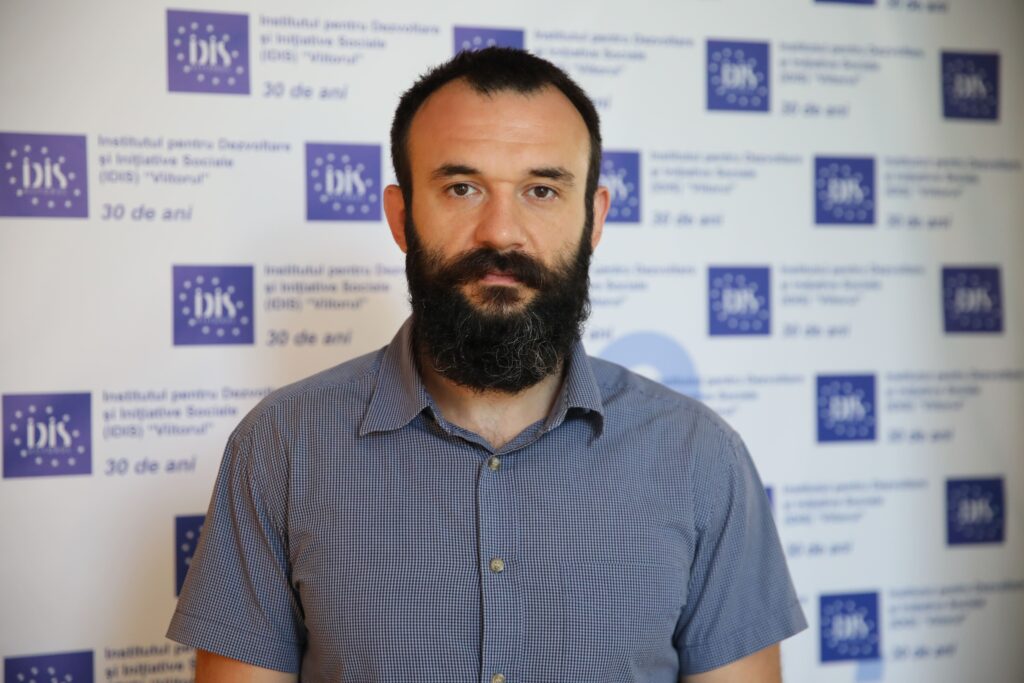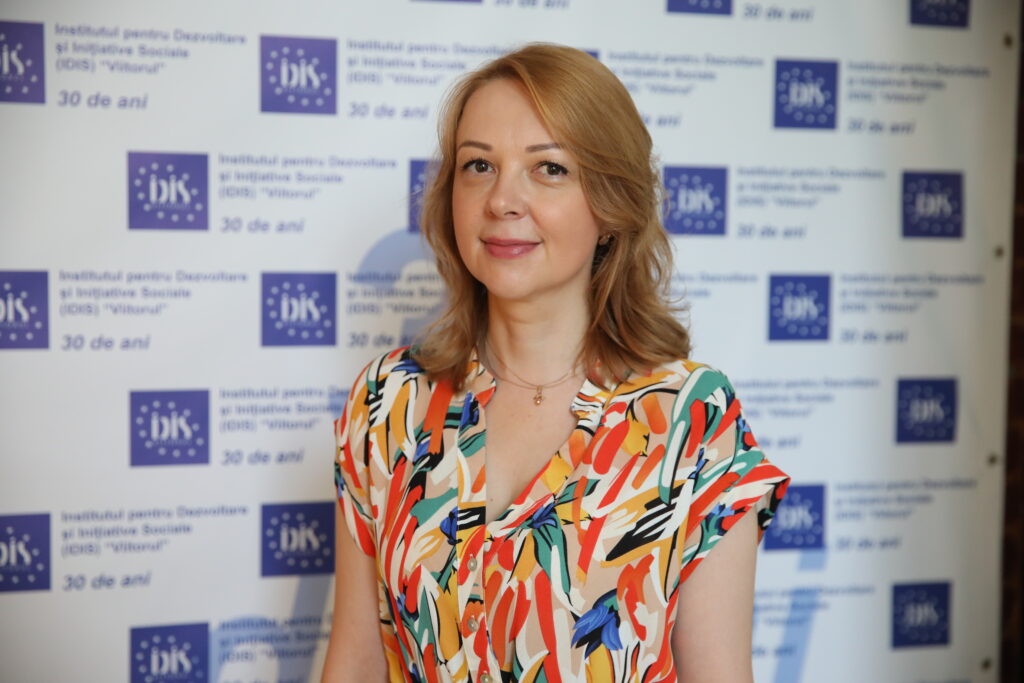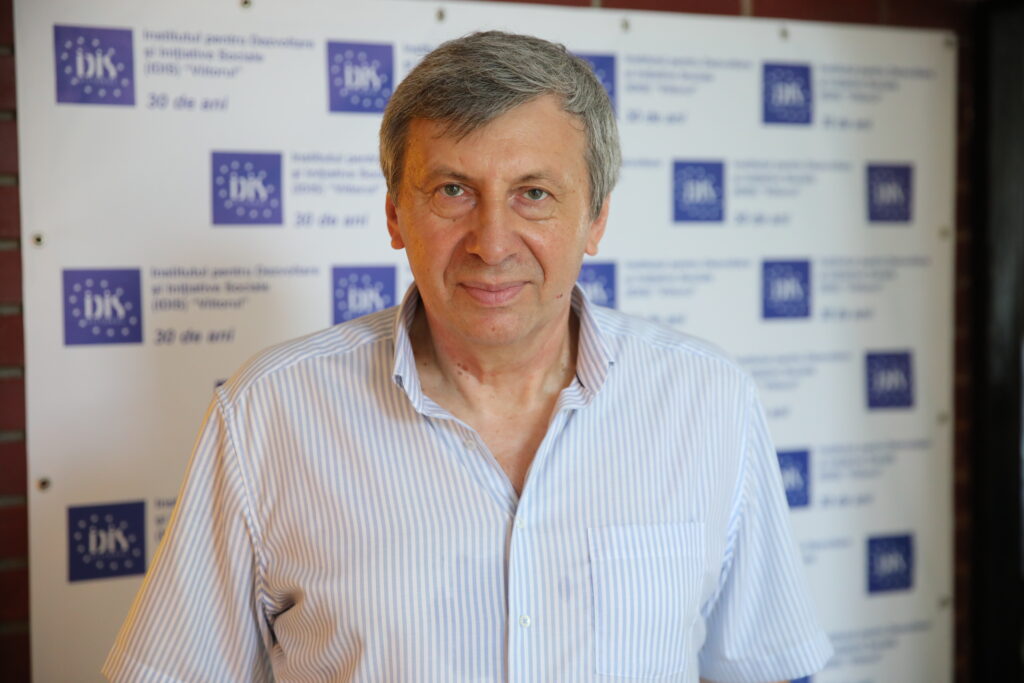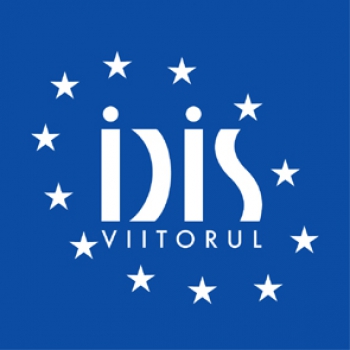The IDIS “Viitorul" was established in June 1993 in Moldova. Positioned as a not-for-profit, public-benefit organization, IDIS is a liberal think tank, which is not affiliated to the government or to any political party. We see our mission to contribute to the growth of independent thinking environment in Moldova and in other emerging democracies; to assist the creation of a modern, viable and open market-economy, to assist the expansion of the civil society in which the citizens act together to express their own interests, to exchange information and to strive for mutual goals and influence government.
As an independent think tank, IDIS is combining social, political and economic research with solid advocacy components. It undertakes applied field research and monitor targeted issues in several fields: economics, EU policies, security risks and foreign policy, social policy, migration, disinformation, regional development, but it also plans and implement regular policy debates and conferences, conduct considerable outreach activities, and regularly uphold an active presence in mass media. We cooperate with different organizations as well as government institutions when this corresponds to our values and goals. We have forged several linkages between the academic and policy-making environments, generating policy analysis and recommendations for various areas of public interest, creating and disseminating of the best practices, good governance, and political / economic analysis. It has acquired several memberships in professional associations, such as EPIN (Economic Policy Institutes Network) and PASOS (Policy Association of the Open Society Network).
We believe in the moral argument of liberal democracy, free markets and peaceful cooperation as an incentive for long-lasting transformation in the South East Europe. Only through liberal democracy and free market can Moldova and other countries of the region achieve dignified, peaceful and prosperous life. Regional cooperation with similar think tanks from EU countries, Moldova, Ukraine, Romania, Bulgaria and other countries of the South Eastern Europe is crucial for achieving these goals.
Organization Summary
Members

Mihai Turcanu
Mihai Turcanu educational background is in Political Science (master’ Degree) and Modern History (Ph.D.) From 2013 until now Mihai work at the History Institute, Moldova’s Academy of Sciences. At the Institute Mihai has conducted research on political and diplomatic aspects of the US-Romanian relations in the Interwar period, has wrote academic articles and studies on Contemporary History topics but also was director of the “Moldova’s History in archive sources: social, economic, political, and cultural aspects (XIX-XX century)”, project within the state-funded Young Researcher’s Program.
Mihai first began working in the civil society sector in 2014, when he started work as a Project Coordinator at the Information and Documentation Centre on NATO in Moldova where he was drafting and implementing projects funded by the NATO PDD.
In 2017-2018 Mihai was Head Editor at the European Security Journal. The main responsibilities were to write analyses on security related topics, with a special focus on Eastern Europe, select topics for news updates and guiding contributors in accordance with the ESJ policy, maintain an up-to-date English and Romanian version of the www.esjnews.com website
Mihai Țurcanu is working at the Institute for Development and Social Initiatives (IDIS) “Viitorul” since 2018. At IDIS „Viitorul” Mihai has worked in the implementation of projects focused on:
– Reconfiguring EU Democracy Support. Towards a Sustained Demos in the EU’s Eastern Neighbourhood within the REDEMOS – TOWARDS A SUSTAINED DEMOS IN THE EU’S EASTERN NEIGHBOURHOOD project. REDEMOS brings together a consortium of eleven research-oriented and academic institutions, including six universities, four independent think tanks, and one small and medium-sized enterprise from all across Europe, to address the fragile state of democracy in Eastern Europe and provide ways forward for EU democracy support in its eastern neighbourhood. The project will take a deep dive into the full array of political and governance regimes in the EU’s eastern neighbourhood, from flawed democratization in some countries to democratic regression and even repressive authoritarianism in others.
REDEMOS aims to break new ground and propose a wholesale, transformative reset in conceptualising, policy-making, and implementing democracy in the EU’s eastern neighbourhood and to ensure the voices of marginalized groups are heard.
-Public procurement. Currently, he holds the position of project associate within the project “Increasing the Integrity in Public Procurement” implemented by PTF and IDIS, financed by DRL
-Youth NGOs. He was coordinator of the projects “Strengthening the capacity of NGOs for youth in the North, Center and South regions” (2019) and “Promoting the participation of young people in the electoral processes in Moldova” (2020) within the program “Grants for youth” of the Ministry of Education. Within this has trained 280 young people and youth workers.

Carolina Ungureanu
Carolina Ungureanu holds a master’s degree in International Relations. She is a PhD student in the History and Theory of International Relations and Global Development at the State University of Moldova, Faculty of Political and Administrative Sciences, Chair of International Relations. In this context she won a scholarship for the PhD at the Faculty of Social Sciences and Economics at the University of Geneva in Switzerland. She was previously a University Lecturer at the State University of Moldova (from 2004 – 2010). Carolina Ungureanu has been working since 2008 as a Grant Manager, currently, as Deputy Director and Project manager within the IDIS “Viitorul”. In her role at IDIS, Carolina is responsible for supporting the implementation of the projects. This includes support for expert missions, the organization of meetings and workshops, monitoring and reporting as well as drafting project-related documents. She maintains close contact with all relevant stakeholders in Moldova as well as relevant international organizations. In the last years she was project manager in many other funded development cooperation projects, including the following projects: Increasing the Integrity of Public Procurement, financed by DRL; EU4Dialogue: Supporting understanding between conflict parties’, financed by EC; The EU and Eastern Partnership Countries – An Inside-Out Analysis and Strategic Assessment (EU-STRAT)” funded under the European Union’s Horizon 2020 Programme for Research and Innovation; Cutting edge improvements in the public procurement system in Moldova through inclusiveness, creativity and law – abiding practices”, financed by EU and co-funded by UK Aid with the support of the UK Government; Developing Open Contracting in Moldova through informing and capacity building activities for participants in public procurement process, financed by World Bank Group; Strengthening Non-State Actors’ Capacities to promote reform and increase public accountability”, (“Civil Society. Dialogue for Progress”), Contract No ENPI/2012/309-522, financed by EC; Building transparent and sustainable public procurement system through efficient and permanent monitoring process, funded by the EU through the “Facilitating regional activities of civil society in the neighborhood” managed by Policy Association for an Open Society (PASOS); Rural tourism – a sure step towards boosting the cross-border cooperation between districts of Soroca (Republic of Moldova) and Yampil (Ukraine), financed by EPTCP; etc.

Liubomir Chiriac
Liubomir Chiriac holds a PhD. He is Executive Director of IDIS “Viitorul”, team leader and expert in public governance and economic development. He has joined IDIS already 30 years ago when it was established and has coordinated more than 45 projects related to good governance, EU, economic development, local democracy and civil society including cross-border projects, financed by EU Delegation to Moldova, UNDP, GIZ, Soros, HSS etc. His key qualifications are: local and regional development, economic development, strategic planning, administrative decentralization, public management, public policy, public services, municipal services and local democratization. He is the co-author of the more 40 studies and provided a lot of training, coaching sessions and activities in order to consolidate capacities of different beneficiaries (LPA, business, LAG, CSO, etc.). He was team leader in different projects, for examples: Research on opportunities to increase export activity of businesses from the Transnistria region of the Republic of Moldova to the EU, Develop and promote the green tourism in the Danube sector of the Black Sea Basin, strengthening the capacity of non-governmental youth organizations in the North, Center and South regions, Engagement of CSOs in the delivery of local public services in South Development Region within the framework of the project Modernization of Local Public Services in the Republic of Moldova, Comprehensive training program to strengthen the skills and capacity building of women leaders from underrepresented groups etc.

